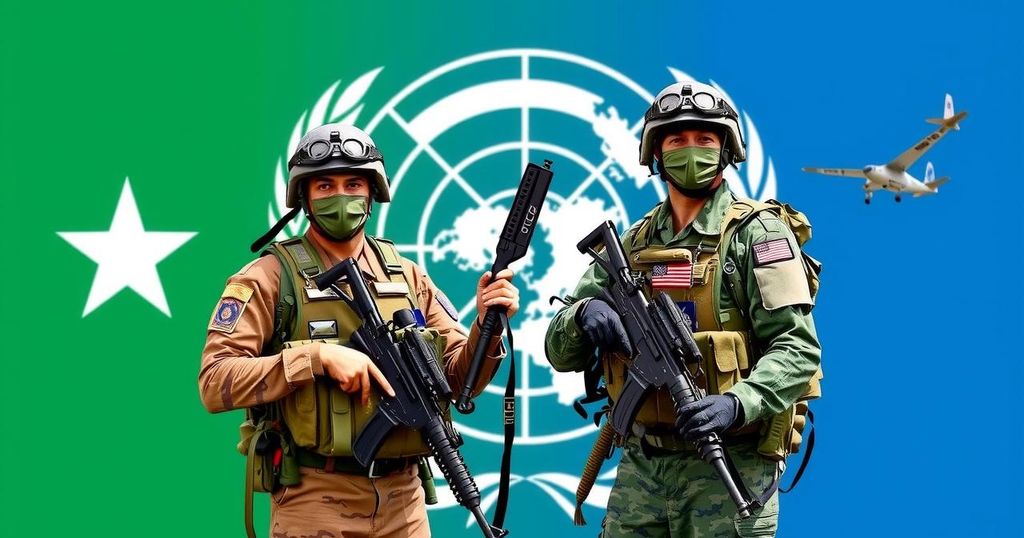The United States aims to transform the Kenya-led force in Haiti into a U.N. peacekeeping operation due to escalating gang violence. Diplomatic negotiations face challenges as Russia and China express concerns. The Kenyan force currently struggles with underfunding, seeking to bolster its numbers and support for Haiti’s national police amidst a significant security crisis affecting the country.
The United States has intensified its efforts to transition the Kenya-led multinational force in Haiti into a United Nations peacekeeping mission, amidst a surge in gang violence that rendered Port-au-Prince’s airport inoperable. Initially proposed in September, this transformation aims to secure ongoing funding for the United Nations-backed force responsible for assisting Haiti’s national police in countering gang activity—an endeavor currently facing substantial financial challenges. The escalating situation in Haiti has been exacerbated by an increase in violent attacks from gangs, which reportedly control about 85% of the capital. The United States seeks alignment from all members of the U.N. Security Council under a draft resolution that emphasizes urgent contingency preparation for such a transition. Diplomatic discussions proved challenging, particularly with Russia and China expressing reservations regarding the shift to UN control. Russia has requested formal briefings to assess Haiti’s situation, leading to scheduled Security Council consultations. Currently, the Kenyan-led force is under-resourced, with only approximately 430 international police deployed versus the intended 2,500. Despite Kenya’s commitment to sending additional personnel by November, the U.N.’s trust fund, crucial for financing these operations, has fallen short of its funding goals, having collected only $85.3 million of the $96.8 million pledged. The growing gang power since the assassination of Haitian President Jovenel Moïse in 2021 has elicited calls for U.N. intervention, a stance supported by regional leaders. Nonetheless, there remains a degree of skepticism among the Haitian populace regarding foreign military presence, given past experiences with international interventions, including allegations of misconduct during the last U.N. mission that ran from 2004 to 2017.
The article discusses the ongoing crisis in Haiti, highlighting the worsening situation caused by rampant gang violence and the political instability that followed the assassination of President Jovenel Moïse in 2021. The United States is advocating for a transition from the Kenya-led multinational force to a U.N. peacekeeping operation, responding to the urgent request for enhanced security in Haiti. The financial and logistical challenges faced by the Kenyan-led force illustrate the complexities involved in international peacekeeping efforts in the region. Furthermore, the historical context of foreign military interventions in Haiti informs current attitudes towards such actions amidst concerns over past misconduct during previous U.N. missions.
In summary, the United States is aggressively pursuing a transition of the current Kenyan-led force in Haiti to a United Nations peacekeeping operation in light of escalating violence perpetrated by gangs. Ongoing diplomatic efforts to garner support from the U.N. Security Council face significant hurdles, particularly from Russia and China. As financial constraints limit the Kenyan-led force’s effectiveness, the humanitarian crisis in Haiti necessitates urgent international attention and deliberation on the potential for a U.N.-backed intervention amid historical wariness of foreign military presence.
Original Source: www.military.com






